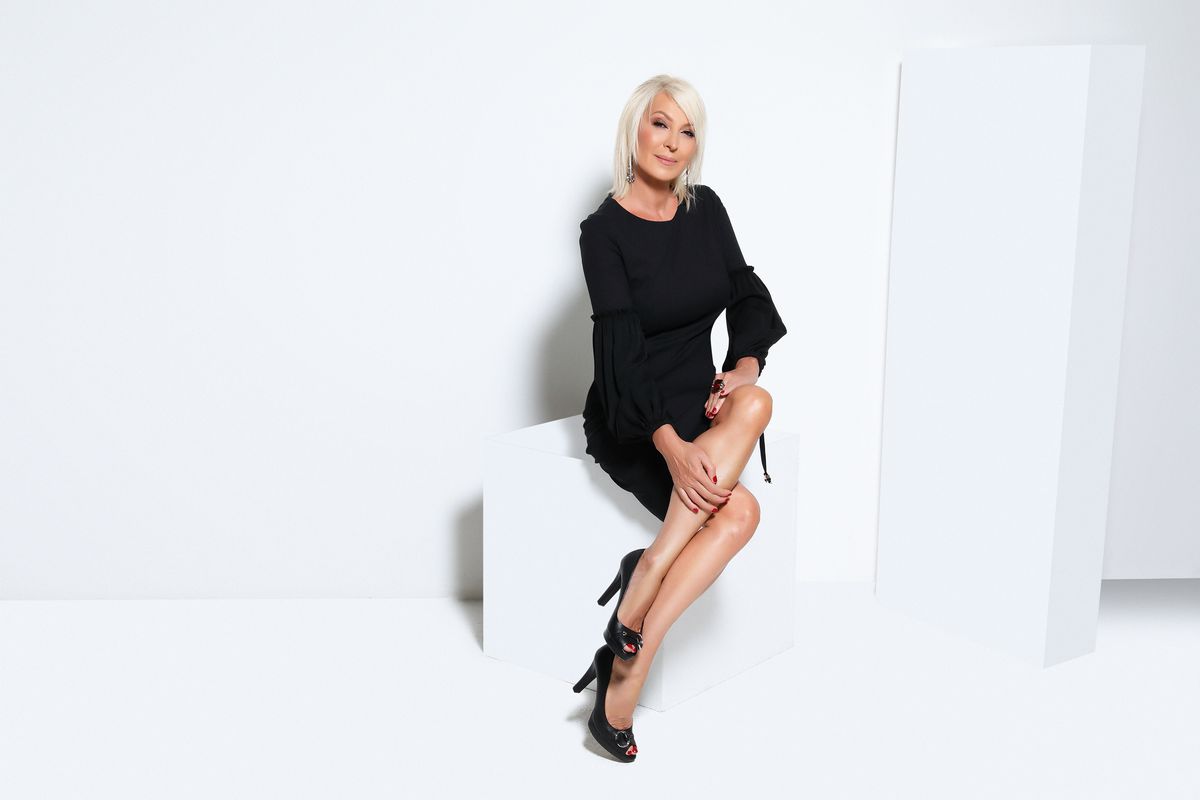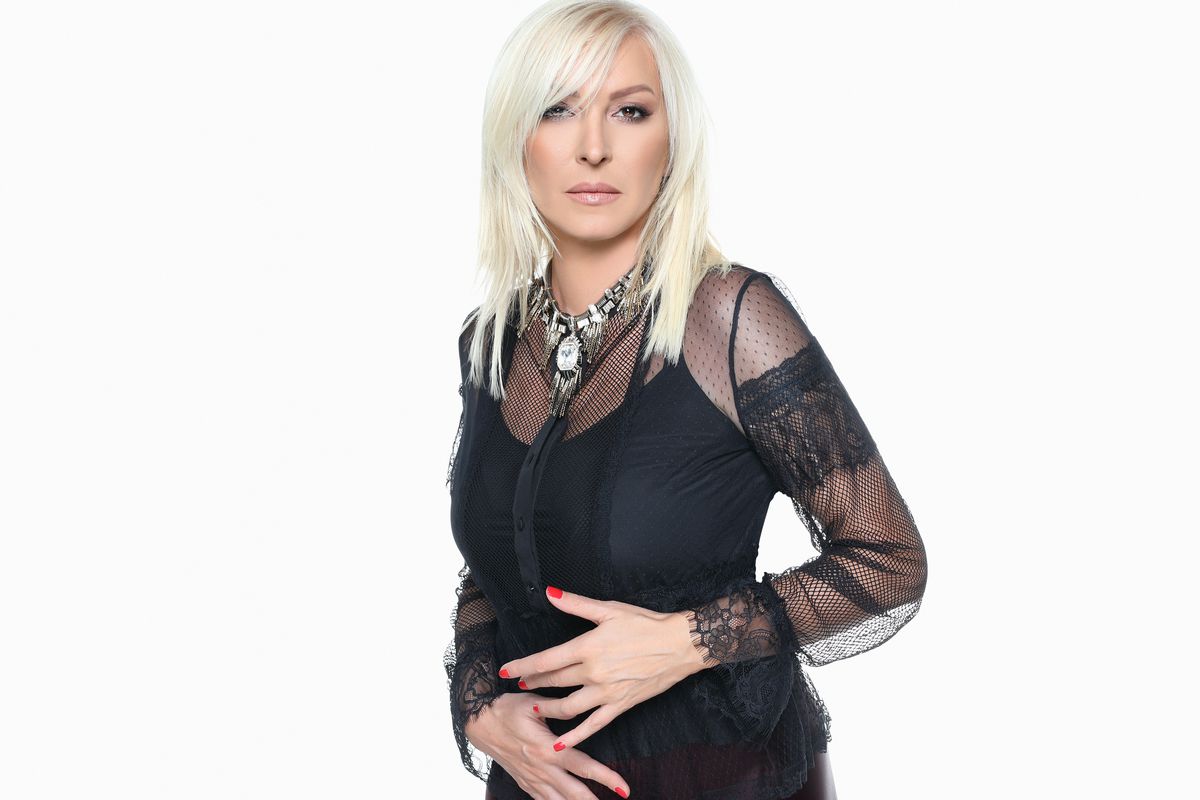It is my privilege to have extensive media experience, so I can judge and separate the essential from the unimportant and truth from lies

Director of the Entertainment Programme of the Serbian Broadcasting Corporation (RTS), Olivera Kovačević, is often the target of attacks from all sides. Because of her straightforward and no-holds-barred statements, she knows how to stir up the political public in Serbia, just like recently when she declared that RTS would change when the people want it to change or how she is very aware of all the flaws of Serbian society, including the public broadcaster she works for. She does not hesitate to criticize and ask questions, even when she is the one who is expected to answer.
In light of the current situation in society and the media, entertainment programme is rarely mentioned. How important is this kind of programme for society and what can the latest entertainment trends tell us about the society we live in?
I would disagree with your statement. In terms of media, one of the most frequently used terms is “reality show” and how reality shows are poisoning our society, which means that entertainment programmes are very often mentioned and analyzed. It is obvious how important entertainment programmes are for society as they can be seen as an intersection and a reflection of both our reality and social values. What we watch on our televisions speaks volumes about what kind of society and what kind of people we are.
Entertainment content is very important in the life of every individual. They are a kind of remedy for eliminating stress but often the way we have fun is an indicator of certain serious health and social problems. How to determine and maintain the line between healthy entertainment and satisfying basic instincts?
You say that entertainment programmes are a kind of remedy for eliminating stress but I can cite several examples of how they actually increase stress like sports programmes, for instance. I know quite a few women that were fuming while they were watching Novak Djokovic play and waiting for him to win. Yes, the way we have fun can be an indicator of social problems, but I think it’s pretentious to say that it can be a source of health problems. They are, after all, individual things. Entertainment can certainly reflect society’s poverty, primitivism and intolerance, but when you offer quality content, it attracts the attention of a large number of viewers. The fact that the most watched show in our country is the general knowledge quiz Slagalica tells you a lot about Serbia, and that is, you will agree, quite impressive. As for guarding the line between decent and indecent content, this is the responsibility of the editors and the media, and how they ‘loosen the brakes’ in order to mask some other events and problems in real life.
Commercial national stations that also record good viewership cannot compete with the Serbian Broadcasting Corporation primarily in terms of the decency of their programming
The Serbian Broadcasting Corporation and its entertainment department hold the rights to Serbia competing in the Eurovision Song Contest. This event has been criticized a lot both in the artistic world, as well as by nationalists. It has also been often the target of homophobic attacks due to its immense popularity in the LGBTQ+ community. Why is the Eurovision Song Contest important and what values does our traditional society gain by participating in such an event?
In addition to critics, whether they are artists or nationalists, the Eurovision Song Contest has far more fans, supporters and viewership, and it is one of the biggest television productions in the world, and as a television show program, it is certainly the most watched. About 350 million people watch the competition each year. The Eurovision Song Contest is important for Serbia because it represents the world stage on which states and nations rise above each other, shows how our country belongs to the world and the ability of creative people from Serbia to participate in global trends and global music visual and television brands. It would be good if Serbia was as successful in other spheres of our life as it is at the Eurovision Song Contest, such as football. The values that the Eurovision Song Contest promotes, such as a sense of togetherness, music, creativity and closeness with other people, are certainly the values of our society as well.
A year on, what do you think of Konstrakta’s success at last year’s Eurovision? What did the fact that we picked such an artist and song show and how much influence did it have on the domestic music scene and our conservative society?
Konstrakta’s victory at the national competition shows our society in a good light, and that our society is not predominantly conservative, but on the contrary, it is open, modern and in step with the times and global trends, and if you like, advanced in the creative sense. Your insistence that our society is conservative can be justified, on the one hand, by that there is greater visibility of various nationalist minority groups, but I do not think that such an image is dominant.
Why is the Serbian tradition almost uniformly presented as one-dimensional, as seen in numerous TV shows and programmes? A foreigner might get the impression that all Serbs live in the countryside, that they all play the flutes and wear traditional costumes. Aren’t there other topics that distinguish Serbia, which could be presented on television – science, education, innovation, ecology, contemporary art…?
I think that the Serbian tradition is presented exactly as a tradition should be presented. Other topics such as innovation, ecology and contemporary art are not traditional topics but modern ones, and they are presented in many public broadcaster programmes, on all 12 channels, from national to cable.

At the recent media festival in Rovinj, you were quoted as saying that RTS would change when people want it to change. With this statement, you caused a real storm in the domestic public. Does this mean that RTS is currently bad and that Serbian society deserves it as it is?
The fact that RTS is the most-watched TV station in Serbia and one of the 17 most-watched public broadcasters in Europe means that it has won over the trust of viewers and citizens of this country. The fact that they are watching RTS is good news. Commercial national stations that also record good viewership cannot compete with the Serbian Broadcasting Corporation primarily in terms of the decency of their programming. Of course, RTS will exist as long as its programmes are watched, i.e. as long as its content is relevant and influential. Those hollow theories that viewership is not important, but only quality, nullify the very essence of putting in the effort, working hard and producing TV content, because why wouldn’t people watch something that is good quality? My experience says that the top quality content is also the most viewed.
RTS is the most-watched TV station in Serbia and one of the 17 most-watched public broadcasters in Europe
What should the Serbian Broadcasting Corporation look like?
What would you like it to look like? Very often you will hear among certain people that certain other public broadcasters are better or have better quality programming, but this is often a very narrow-minded observation. Since you have already mentioned the Eurovision Song Contest, I would just like to mention that the competition for Serbia’s entry to the Eurovision Song Contest was declared by European critics to be one of the best in Europe.
From the position of a consumer of television and media content, what do you like to watch and how much do you trust news programs in general?
I watch most Serbian TV stations, both national and cable. I also watch what I like and what I don’t like. It is my privilege to have extensive media experience, so I can judge and separate the essential from the unimportant and truth from lies.